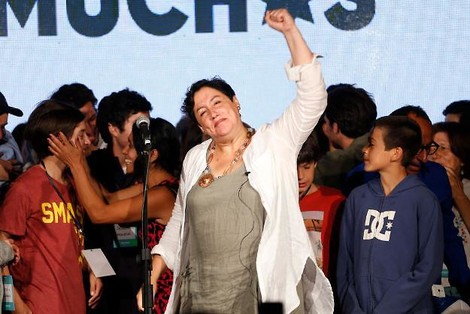Your podcast discovery platform
Curious minds select the most fascinating podcasts from around the world. Discover hand-piqd audio recommendations on your favorite topics.

piqer for: Globalization and politics Global finds
Luis BARRUETO is a journalist from Guatemala. Studied business and finance journalism at Aarhus University in Denmark and City University London.
Latin Americans Are Tired Of Mainstream Politicians: Chile Is Not The Exception
Chile is touted as one of the most stable countries in Latin America. But a surprise in Sunday’s first-round presidential election suggests it isn’t immune to the rest of the region's discontent with politics as usual.
After polling at a meagre 8.5% before the election, former journalist Beatriz Sanchez and her leftist Frente Amplio coalition gathered a total 20.27% of votes in the first round of Chile's Presidential Elections. She trailed closely behind the official party's candidate, Senator Alejandro Guillier, and her supporters will prove decisive as center-left Guillier and center-right Piñera face off next December 17.
As Americas Quarterly's Brendan O'Boyle explains, "an unprecedented share of voters – about a third – voted for a candidate from outside the two principal coalitions that have dominated Chilean politics since its return to democracy". Jose Antonio Kast, a far right candidate with sympathies for former dictator Augusto Pinochet and his regime, also captured around 8% of the votes after polls suggested he would win only 2 or 3%.
The Political Center Loses Ground
As the extremes performed better than anyone expected, both Guillier and Piñera will have to turn to voters from far ends of the political spectrum. And political scientist Robert Funk said polarization will likely be an issue for the incoming President: “People voted for new faces, but only on the right and left. The centre seems to lose space,” he told the FT (Paywall).
Anger at the establishment was not the only factor in the Chilean election – plenty of voters are moved by economic themes above all – but as the result of the first round shows, it will be part of a broader trend in the region. Countries throughout the hemisphere – a total of nine will have elected a new president between 2017 and 2018 – are reckoning with voters' dissatisfaction with their elected leaders.
